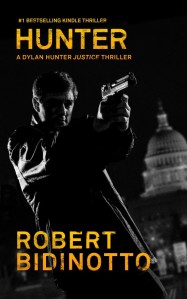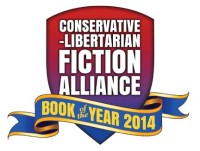As most of you know, Amazon has been in a serious contract dispute with Hachette, one of the “Big Five” publishing conglomerates. Central to this conflict is ebook pricing. Big Publishing wants to keep the prices of ebooks high — well above $10, in many cases.
The reason? Until relatively recently, traditional publishing has been rooted in producing and selling print books. Their entire organizational infrastructure was built upon wholesaling print books through retail stores. Subsidiary industries — author agents, bookstores, book distributors, printers, paper manufacturers, prominent print-book reviewers and bestseller lists (e.g., the New York Times, the New York Review of Books, et al.) — all depend on the continued dominance of print books, and the advertising dollars that are poured into various periodicals.
In addition, even though publishing contract terms (including advances, royalties, and rights) are simply awful for 99% of authors, a relative handful of Big Name Authors do in fact benefit disproportionately from their alliances with Big Publishing. These “one-percenters” (to borrow a term from current political parlance) get extravagant advances from the publishing houses — advances so large that they don’t care much about other contractual terms, such as royalties and subsidiary rights, which other authors must endure. They have a huge vested interest in keeping the publishing industry frozen in amber, exactly as it is. As marquee figures in the industry, these Big Name Authors also dominate prominent writers groups, such as the Authors Guild. So, when such individuals and groups issue statements, purporting to speak for authors generally, you can be sure that they are really only representing their own narrower interests.
Like long-time participants in any industry, the last thing any of these players wants is change. They regard it as “market disruption” — the implication being that they have a right to freeze the status quo in place. Of course, innovation, by definition, disrupts the old established ways. That’s why the dinosaurs in most industries fight innovation to the death.
The emergence of online retailing, ebooks, and their step-child — the Self-Publishing Revolution — have been highly disruptive to the Big Publishing Establishment. All of these innovations have been pioneered and/or championed most notably by Amazon. Which, of course, is why the entire Establishment — Big Publishers, bookstores, agents, Big Name Authors, distributors, major periodicals (which benefit from publisher advertising), et al. — have aligned themselves loudly against Amazon. This Establishment used to have an oligopolistic lock on book production, distribution, and sales. It thus could set book prices to the public at whatever points it wished. Acting as “Gatekeepers” to publication, it could squeeze authors with onerous contract terms. It could decide what kind of books would be issued, in what format, when, and for how long.
However, the cozy, long-standing status quo of book production and distribution has been disrupted by new technological innovations and market competition. Online retailing and ebooks have decimated bookstores and distributors, and complicated the lives of all whose fate depends on print. Meanwhile, those same two innovations have brought thousands of self-publishing authors — self included — into the book marketplace.
Which brings us back to the contractual dispute between Big Five publisher Hachette and Amazon.
Amazon retails a large percentage of Hachette’s print, ebooks, and audiobooks to the public, just as it does those of other publishers. Central to the dispute is Hachette’s (and the Big Publishing Establishment’s) desire to keep ebook prices sky-high. Suppressing the demand for ebooks is their way of propping up their rapidly declining print-book share — hence, maintaining the traditional book marketing structure — hence, fighting the growth of Amazon.
Now things have come to a head. Some 900 Big Name Authors and other traditionally published writers, colluding with the rest of the Establishment, aim to place a full-page anti-Amazon ad in the New York Times on Sunday, August 10th. That ad alone adds over $100,000 into the coffers of the Times, which — dependent on weekly ads from book publishers — has been running articles blatantly slanted toward Big Publishing. Understand that, for the first time, thousands of self-publishing authors are now competing directly with these Big Name Authors, often knocking them from their perches atop the bestseller lists. And lowering our ebook prices constitutes one of our competitive advantages over them. Dependent upon print sales and bookstores for their dominant status, is it any wonder why they are so upset, and why they’re campaigning to suppress ebooks?
In anticipation and response to the New York Times ad, and after being bashed mercilessly for months, Amazon has decided at last to speak out publicly with an open letter to readers and writers. I urge you to read it.
It’s also why a rival public petition, signed by over 8,000 indie authors (at last count), also has been posted, opposing Hachette and Big Publishing in this dispute.
As regulars here know, I’m firmly on Amazon’s side in this battle. Had it not been for the opportunity provided by their Kindle Direct Publishing self-publishing program — an opportunity to reach readers like you with my books quickly and at a bargain price, an opportunity that Big Publishing never would have granted me — my wife and I would be financially destitute; HUNTER and BAD DEEDS never would have been written and published; and I would not have been able to establish my late-life fiction-writing career. My example is only one of many thousands.
This conflict between Amazon and Big Publishing constitutes a pivotal moment that will help shape the future of the book industry. I strongly encourage you to read Amazon’s letter to readers and authors, and perhaps some of the follow-up articles by indie authors that are linked there, too, beneath the letter.
Then, if you are so inclined, I further encourage you to write a letter to the Hachette CEO (his contact info is at the link), which I intend to do today. Finally, if you’re a writer, I hope you also sign the indie author petition.
UPDATE: My letter to the CEO of Hachette:
Michael Pietsch, CEO
Hachette Book Group
August 9, 2014
Dear Mr. Pietsch:
I realize that you are being bombarded today with comments from readers and authors about Hachette’s contractual dispute with Amazon. If time and interest permit, I encourage you and your staff to consider my own thoughts, just published here:
For the moment, though, let me share only this much:
In 2011, past age 60, the opportunity to self-publish through Kindle Direct Publishing rescued my wife and me from financial ruin. Being able to price my ebook at only $3.99 was critical to this turnaround of circumstances. It enabled me to compete successfully with the world’s most prominent authors, including your own, soaring past them to the very top of the ebook bestseller lists with my debut thriller.
Inexpensive ebooks represent the future of publishing. Standing athwart this juggernaut of progress, throwing obstacles in its path, and yelling “Slow down!” is not in the best interests of your company or the broader publishing industry—let alone in the best interests of readers and authors.
That is why I am one of 8,000 signatories to the independent-author’s petition on Change.org. We urge you to reconsider your position in the dispute with Amazon. Prudent reflection will reveal that the long-term best interests of all of us are, in fact, aligned . . . but only if we don’t remain slaves to a fast-vanishing status quo.
Sincerely,
Robert Bidinotto, Author
The Dylan Hunter Thrillers
HUNTER and BAD DEEDS



 Photo (c) by Debbie Scott
Photo (c) by Debbie Scott




